News
-
 Neuroscience
NeuroscienceMorphine may make pain last longer
Instead of busting pain, morphine lengthened the duration of pain in rats with a nerve injury.
-
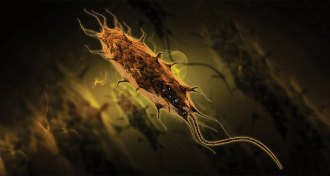 Life
LifeBacteria resistant to last-resort antibiotic appears in U.S.
For the first time in the United States, scientists have reported a patient infected with a strain of bacteria carrying the gene mrc-1, making it resistant to the last-ditch antibiotic colistin.
By Meghan Rosen -
 Computing
ComputingNew technique produces real randomness
A new technique makes it easier for computers to roll the dice.
-
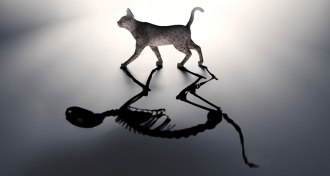 Quantum Physics
Quantum PhysicsSchrödinger’s cat now dead and alive in two boxes at once
The living-dead feline has been split in two, using a system of microwaves inside superconducting cavities.
-
 Climate
ClimateClimate-cooling aerosols can form from tree vapors
Climate-cooling, cloud-seeding aerosols can form in the atmosphere without the sulfuric acid spewed from fossil fuel burning, new research suggests.
-
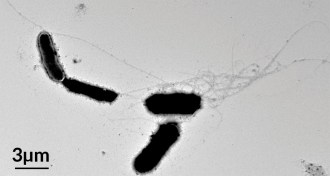 Neuroscience
NeuroscienceAlzheimer’s culprit may fight other diseases
A notorious Alzheimer’s villain may help bust microbes.
-
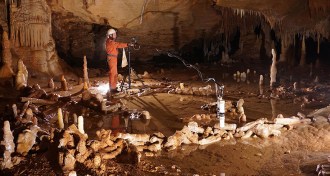 Archaeology
ArchaeologyStone circles show Neandertals’ social, technical skills
Ancient human relatives built circular stalagmite structures inside a French cave.
By Bruce Bower -
 Planetary Science
Planetary ScienceSpace experts say sending humans to Mars worth the risk
At a meeting in Washington, NASA and aerospace reps discuss the hopes and hurdles of landing a crew on Mars by the 2030s.
-
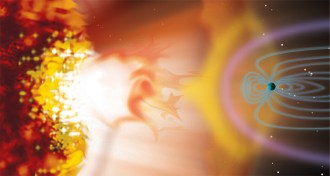 Astronomy
AstronomyYoung sun’s super solar flares helped set early Earth up for life
Super solar flares may have provided early Earth with planet-warming and life-building molecules.
-
 Climate
ClimateZapping clouds with lasers could tweak planet’s temperature
Breaking up the ice particles inside cirrus clouds could make them reflect more light, turning them into a tool to combat global warming.
-
 Genetics
GeneticsRisk identified in procedure for ‘three-parent babies’
Resurgent mitochondria could spell trouble for disease therapy.
-
 Oceans
OceansAncient tsunamis reshaped Mars’ landscape
Ancient tsunamis generated by meteorite impacts may have reshaped ocean coastlines on Mars.